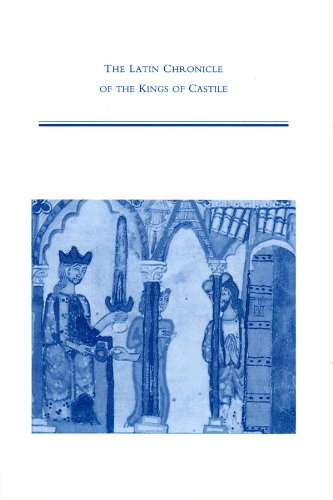The Latin Chronicle of the Kings of Castile, is one of favorite books about medieval Spain (I’ve already gone back and re-read this book multiple times). In a weird comparison, this book felt very much like reading The Silmarillion (history told by the perspective of the Elves). I find these types of books to be extremely immersive, I feel almost as I’m in the world where these history annals are being described to us. Little have I imaged a few years back, that primary sources are now turning out to be my favorite pieces of literature to read!
From it’s original Latin source, this book would be called the “Latin Chronicle of the Kingdom of Castile”, the book starts from the reign of the first autonomous count of Castile, Count Fernán González, all the way to the reign of the king Fernando III of Leon-Castile. Although the bulk of this book is focused mainly focused around the events during reigns of Alfonso IX of León (1187-1230), Alfonso VIII of Castile (1158-1214), and Fernando III of Castile and Leon (1217-1252). This era is undoubtedly the turning point during the reconquest of Moorish Spain. Personally this is favorite era during the request 1157-1248 (After the death of Alfonso VII of Leon-Castile, all the way to conquest of Seville by Fernando II of Leon-Castile).
Although this book is just under 200 pages, it covers a lot of ground. With the different and complex layers of the political landscape in Medieval Spain, between Christian and Muslim states, the translator of this chronicle does an excellent job annotating the additional information needed to fully understand the concept that the medieval chronicler is portraying. Another interesting thing about this book is that it also describes the state of the world from the Castilian point of view. In it we read the state of the Albigensian Crusade, The Third and Fourth Crusades, to the capture the Holy Land, as well as the Crusade of Holy Roman Emperor Frederick II.
It’s kind of interesting about author of this Chronicle (Bishop Juan of Osma or Bishop Domingo of Plasencia), did not included the entire history of Castile from its inception. Although they’re plague with biases and negative view towards the enemies of Castile, I love reading these type of primary sources because it gives us an astonishing insight toward the mindset of the person who wrote the chronicle. Written by cleric, the chronicle has lots of beautifully written phrases and quotes.
